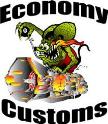Archive for October 2017Regular Schedule or Severe Service Schedule at Economy Transmission and Auto Repair?Posted October 23, 2017 4:50 AMToday's Economy Transmission and Auto Repair article focuses on severe service maintenance. Many Bristol drivers are not aware of them and yet there are also very vocal advocates in CT who think that severe service schedules apply to everyone. Somewhere between a complete lack of awareness and the dire blanket statements lies a reasonable approach to severe service maintenance at Economy Transmission and Auto Repair. Here's another example. Most trips around Bristol are less than 10 miles/16 km and outside temperatures are below freezing. This is the same reasoning, but in very cold CT weather it takes even longer for the oil to get hot enough to evaporate the water, hence 10 miles/16 km as opposed to 4 miles/6.4 km. Economy Transmission and Auto Repair What You Need to Know from Your Economy Transmission and Auto Repair Service AdvisorPosted October 16, 2017 6:36 AMBristol drivers may feel intimidated when they take their vehicles to a service center. They have questions but aren't sure how to ask. They don't want to feel embarrassed about their lack of knowledge. They don't want to make the service technician feel that they don't trust him. Economy Transmission and Auto Repair
| ||
SearchArchiveFebruary 2010 (2)March 2010 (4) April 2010 (3) May 2010 (4) June 2010 (4) July 2010 (4) August 2010 (4) September 2010 (5) October 2010 (1) November 2010 (5) December 2010 (5) January 2011 (4) February 2011 (4) March 2011 (5) April 2011 (4) May 2011 (4) June 2011 (5) July 2011 (4) August 2011 (21) September 2011 (4) October 2011 (4) November 2011 (5) December 2011 (4) January 2012 (5) February 2012 (4) March 2012 (4) April 2012 (4) May 2012 (2) June 2012 (3) July 2012 (1) August 2012 (1) November 2012 (1) December 2012 (2) March 2013 (1) April 2013 (3) May 2013 (2) October 2013 (5) November 2013 (2) January 2014 (2) February 2014 (3) March 2014 (2) July 2014 (3) August 2014 (7) September 2014 (4) October 2014 (5) November 2014 (4) December 2014 (4) January 2015 (5) February 2015 (4) March 2015 (4) April 2015 (5) May 2015 (2) June 2015 (6) July 2015 (2) September 2015 (2) October 2015 (5) November 2015 (3) December 2015 (3) February 2016 (1) March 2016 (5) April 2016 (4) May 2016 (5) June 2016 (4) July 2016 (5) August 2016 (4) September 2016 (4) October 2016 (5) November 2016 (4) December 2016 (4) January 2017 (5) February 2017 (4) March 2017 (4) April 2017 (4) May 2017 (4) June 2017 (5) July 2017 (5) August 2017 (4) September 2017 (3) October 2017 (5) November 2017 (4) December 2017 (3) January 2018 (5) February 2018 (4) March 2018 (4) April 2018 (5) May 2018 (4) June 2018 (4) July 2018 (5) August 2018 (4) September 2018 (5) October 2018 (4) November 2018 (3) December 2018 (5) January 2019 (4) March 2019 (4) May 2019 (2) June 2019 (5) July 2019 (2) August 2019 (1) September 2019 (4) October 2019 (5) November 2019 (4) December 2019 (5) January 2020 (5) February 2020 (4) March 2020 (5) April 2020 (1) May 2020 (2) July 2020 (1) August 2020 (5) September 2020 (4) October 2020 (4) November 2020 (5) December 2020 (4) January 2021 (6) February 2021 (4) March 2021 (4) April 2021 (4) May 2021 (5) June 2021 (4) July 2021 (3) August 2021 (5) September 2021 (4) October 2021 (5) November 2021 (4) December 2021 (4) January 2022 (6) February 2022 (4) March 2022 (4) April 2022 (4) May 2022 (5) June 2022 (4) July 2022 (3) September 2022 (4) October 2022 (5) November 2022 (4) December 2022 (4) January 2023 (5) February 2023 (4) March 2023 (4) April 2023 (5) May 2023 (4) June 2023 (4) July 2023 (5) August 2023 (4) September 2023 (4) October 2023 (1) January 2024 (1) February 2024 (4) March 2024 (1) April 2024 (1) May 2024 (4) June 2024 (5) July 2024 (4) August 2024 (4) September 2024 (5) October 2024 (4) November 2024 (4) December 2024 (4) | CategoriesWarranty (1)Differential Service (3)Steering (12)Fluids (8)Fuel System (8)Service Standards (4)Maintenance (10)Air Conditioning (11)Alignment (9)Inspection (5)Tires and Wheels (4)Timing Belt (5)Battery (13)Alternator (7)Fuel Economy (7)Exhaust (10)Battery Replacement (1)Fuel Saving Tip: Slow Down (2)Service Intervals (2)Brakes (17)Transmission (5)Keys to a long lasting vehicle (2)Check Engine Light (4)Headlamps (5)What Customers Should Know (83)Auto Safety (5)Safety (2)Dashboard (1)Windshield Wipers (3)Cooling System (9)Tire Rotation and Balancing (3)Drive Train (4)Customer Detective Work (1)Oil Change (9)Wheel Bearings (1)Automotive News (2)Shocks & Struts (3)Older Vehicles (1)Safe Driving (1)Winter Prep (4)Tires (12)Water Pump (2)Winter Tires (1)Spark Plugs (2)Suspension (2)TPMS (3)Brake Service (6)PCV Valve (2)Cabin Air Filter (2)Trip Inspection (2)Transfer Case Service (1)Serpentine Belt (1)Fuel Pump (1)Shocks and Struts (3)Engine Air Filter (3)Fuel Filter (1) | |








